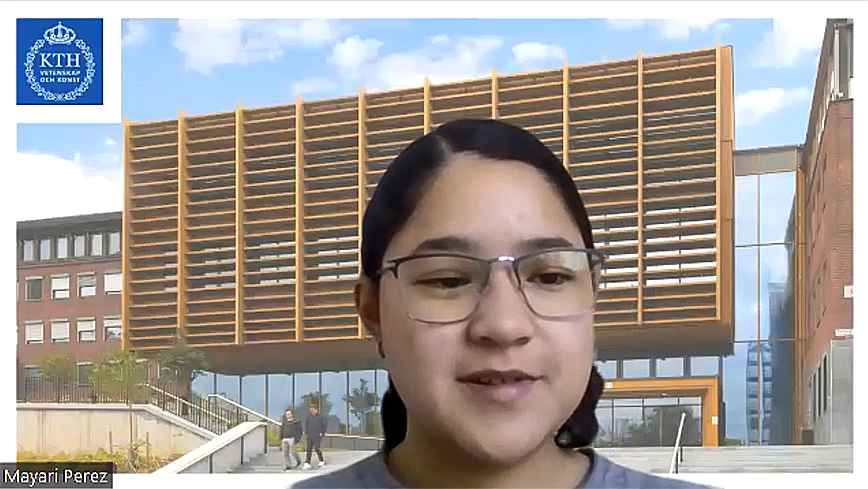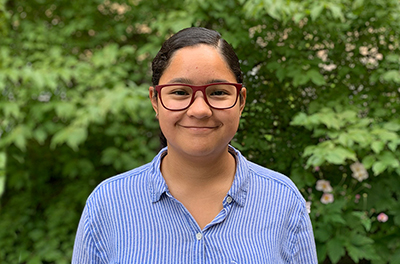Thousands of newly-admitted students welcomed by their peers

Spring is the time when applicants receive their acceptance letter from KTH, but the initial contact doesn’t end there. Soon afterward each admitted student receives a personal call from a student ambassador in their chosen programme.
Since acceptance letters were sent out worldwide to 3,000 international students on March 30, nearly 2,000 Zoom sessions have been held with them by 133 KTH students including KTH’s International Student Ambassadors. The purpose is to check in with the prospective students and answer their individual questions.
Xintong Zhang, who manages the KTH International Student Ambassadors programme, says that there are 59 student ambassadors representing a breadth of academic programmes , and every effort is made to connect admitted students with an ambassador from the same programme.

Communication with prospective KTH master’s students begins early on with fairs, events and webinars that address various relevant topics, like studies, housing, immigration and life at KTH. These continue after acceptance and engagement is also sustained in newsletters and social media groups exclusive to prospective students.
The ambassadors have also been available to take questions over email. From October 1, 2022 to May 30, 2023, the ambassadors recorded 1,611 email conversations with prospective students worldwide and gave guided campus tours for 43 groups consisting of a total of 238 visitors.
“The Connect with a Student project is meant to draw upon experiences that only a current student may offer,” Zhang says. “It’s a really valuable complement to the information that the schools provide so effectively throughout the course of a student’s journey to KTH.”
Student ambassadors offer the clarity of one who has been through the application journey themselves. Student ambassador Mayari Pérez Tay, a sustainable production student from Guatemala, says that their experience usually prepares them for most questions.
“I was on the other side so I know how important it is to get the student’s perspective,” she says. “If you ask a teacher how difficult a course is, it’s hard to trust. And in a webinar setting you may be too shy to ask question in front of the whole group.”
For the most part the calls focus on specifics, Mayari says. “They already have a lot of background from the webinars, so it’s more about things like accommodations, the experience of studying in Stockholm, how the term is organised, how hard the courses are or how the grading works.
“And some of them wonder if their programme is a good fit for them. I do my best to help them, and if I need to, I’ll research the question and follow up with them after the call.”
Occasionally a question will take her totally by surprise. “The strangest question was from a student who asked whether she would be able to balance the workload with raising one-year-old,” she says. “That was hard to assess – I don’t know anyone in my programme who has a baby.
“In general it’s fun. The students are quite eager to join the call and appreciative.”
David Callahan
